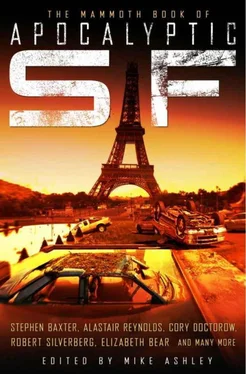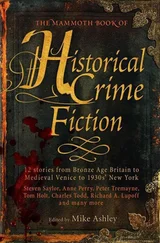The impenetrable darkness has made me think of her, I suppose. She talked about growing up on the prairies that were virtually uninhabited, of being out late when there wasn’t a light to be seen, of her fear of the dark then and forever after. When I said I wasn’t afraid of the dark, she muttered, “You don’t know dark, child. You don’t know.” I do now.
She came out of the kitchen muttering the day I took Warren home to meet my family. “That man ain’t as smart as he thinks,” she said. “He don’t know enough to open a can. Simple, that’s what he is.” I went to the kitchen to find Aunt Jewel showing Warren how to use an old can opener. He had never seen one like it. Simple. He was thirty, with a Ph.D., tenure at the University of Oregon, working with Gregory Oldhams. He had turned down other, better-paid, positions for the chance to work with Greg; he could have gone to Harvard, Stanford, almost anywhere he wanted.
It has started to rain, a soothing monotonous patter on the roof of the car, and now a wind has come up, rustling in the firs, in the vine maples, the broom that grows down the face of the cliff where nothing else can find enough dirt to sink roots. I am very tired.
I brought Warren up here before we were married; he was envious. “You grew up in a wilderness!” he said. He had grown up in Brooklyn.
“Well, you’re here now,” I said. “So it doesn’t really matter so much, does it?”
“It matters,” he said, gazing down at the ocean, then turning to look at the trees, and finally at the A-frame house below us and across a shallow ravine. I had lived in that house for the first twelve years of my life. “It matters,” he repeated. “You have things in your eyes I’ll never get. I have people and traffic and buildings, and people, more people, always more people, always more cars, more exhaust, more noise…” He stopped and I was glad. There was anguish in his voice, bitterness — I didn’t know what it was; I didn’t want to know it.
Greg Oldhams is the foremost researcher in hematology, the study of blood. He already was famous when Warren started working with him, and since then his research, and Warren’s, has become what the articles call legendary. At first, after I met Warren, I felt almost ashamed of my own field -medieval literature. What was the point in that, I wondered, compared to the importance of what they were doing? At first, Warren talked about his work with excitement, passion even, but then he stopped. I know to the day when it changed. On Mikey’s fifth birthday, five years ago. Warren didn’t come home in time for the party, and when he did get home, he was old.
A person can become old in a day, I learned then. Mikey turned five; Warren turned a hundred.
The wind is increasing; there may be a gale moving in. I had to roll up the window on my side when the rain started, and when I reached over to open the passenger side window, I realized I still had the seat belt fastened and then it seemed too hard to work the clasp and free myself. I began to laugh, and then I was crying and laughing. I don’t care if rain comes in the passenger side, but the wind makes a harsh whistling sound through the narrow opening near my head, and I have to decide, open the window more and get wet, or close it. I can’t bear the whistling noise. Finally I make the effort to undo the seat belt, reach over, and open the other window and close the driver-side one. Now I can hear the ocean, and the rain, and even the wind in the trees. So much exertion, I mock myself, but I have to lean back and rest.
This is where I told Warren yes, I would marry him, up here overlooking the sea. “No children,” he said. “The world has enough children.”
I backed away from him and we regarded each other. “But I want a family,” I said after a moment. “At least one child of ours, our genes. We can adopt another one or two.”
Nothing was settled that day. We went back to the A-frame and banged pots and pans and argued and I told him to get lost, to get out of my life, and he said it would be criminal to bring another child into the world and I was being selfish, and the much-touted maternal urge was cultural, and I said people like us owed it to children to give them the same advantages we had, education, love, care… It went on into the night, when I told him to sleep on the couch, and the next day, until I stomped out of the house and came up here to glare at the ocean and its incessant racket. He came after me. “Christ,” he said. “Jesus. One.” Two months later we were married and I was pregnant.
When Mikey was two he got a big sister, Sandra, who was three and a half, and a year later he got a bigger brother, Chris, who was five. Our family.
Mikey was four when they all had chicken pox at the same time. One night Warren was keeping them entertained, coloring with them at the table while I made dinner.
“Why did you make him green?” Chris demanded.
“Because he has artificial blood,” Warren said.
“Why?”
“Because something went wrong with his blood and they had to take it out and put in artificial blood.”
Mikey began to cry. “Is that what they’ll do to us?”
“Nope. You’re not sick enough. You’ve just got spots on your face. You call that sick? I call it kvetching.”
“What’s that?” Sandra asked. She had fallen in love with Warren the day we met her, and he loved all three children.
“That’s when you grow spots on your face, and itch, and pretend you’re sick so your mother will let you eat ice cream all day if you want. And your dad plays silly games with you when he should be at work. That’s kvetching.”
They liked kvetching. Later they got into my lipstick and tried to make it all happen again, spots, whining for ice cream, laughing.
Later it was funny, but that night, with my sick children at the table, itching, feverish, it was not funny. I froze at the sink with water running over lettuce. Artificial blood? We were still in the cold war; atomic war was still possible, anything was possible. Even artificial blood.
“Why?” I asked, after the children were in bed.
He had to start way back. “Remember in the movie Dracula how the good doctor transfused one of the women over and over with whole blood, and it took? Pure luck. Lucy was probably an A-group type, and so was the guy. If he had put blood from an O group in her, she probably would have died on him. That’s how it was. One took, another one, then bingo, it didn’t. Then they found out about the blood groups, and later on about how the agglutinogens combine with certain agglutinins, and not others. And we’ve been learning ever since. The body treats the wrong blood type just like any other invading organism, bacterium, virus, whatever, and rejects it. But in the case of a major catastrophe you can’t count on the lab facilities to handle the typing, the storage, all the mechanics of transfusions. The labs might not be there. We’ve got artificial blood now, you know, but it’s pretty high-tech stuff.”
I hadn’t known until then. I shuddered, and he grinned. “So what’s wrong with being green? Don’t worry, it’s still experimental, and very, very temporary. Anyway, if we could get away from some of the really high-tech stuff and simply transfuse from any healthy person to one who is ill… see?”
“But wouldn’t that be just as high tech?”
He shrugged. “Maybe. Maybe not.
There are genetic blood characteristics that get passed on from parent to child, you know. Sickle cell anemia, which, by the way, comes in a package that includes resistance to malaria. Hemophilia gets passed on…” Whatever expression my face was registering made him stop. “Hey,” he said softly. “I’m just spitballing.”
Читать дальше












